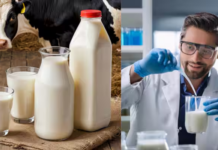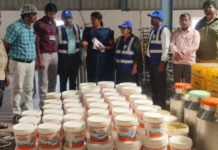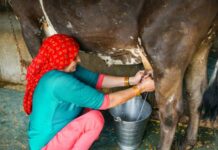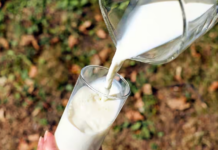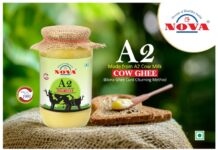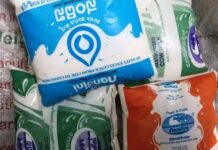Indian dairies are experiencing pressure on their margins with early onset of summer in most parts of the country, leading to a size able fall in liquid milk production and a significant increase in milk procurement costs. Interestingly, the domestic dairies had witnessed similar situation of rising milk procurement costs and pressure on margins during the recent winter as well.
While the average milk procurement prices during the summer of 2016 were Rs 25-26 a litre, it went up to Rs 27-27.5 a litre in last winter, whereas the prices normally fall by Rs 1-2 a litre during winters. This unusual spurt in milk procurement prices was mainly due to high feed costs and low milk production, say industry players and experts. Liquid milk procurement prices this month have begun to rise with early bouts of summer, taking the prices to Rs 28-28.5 a litre and industry representatives predict the prices to move up further.
Dhaval Mehta, research analyst with Emkay Global, said: “The increase in milk procurement prices in 2016 winter, which is an abnormal event, coupled with summer setting in early in 2017, is expected to dent margins on liquid milk by 100-200 basis points.“
Liquid milk generally entails a margin of 6% and a fall of 1-2 percentage points is significant given its low-margin nature, said Mehta. Companies like Mother Dairy, Godrej Agrovet backed Cream line Dairy and Andhra Pradesh chief minister N Chandrababu Naidu-founded Heritage Foods BSE -0.60 % are among the leading dairies that have admitted experiencing the brunt of high milk procurement prices.
“We are experiencing stress on our profitability from liquid milk segment as we are only partially passing on the price rise to the consumers as we want to move with the market in tandem with respect to rise in retail milk prices,“ said Samba Murthy, head of dairy division at Heritage Foods. The rise in milk prices is being attributed to rise in cost of milk production mainly due to high fodder prices caused by draught in Maharashtra, Karnataka and Tamil Nadu and a selloff of milch animals by the farmers.
“There has been a rise in cost of milk production due to high fodder costs. While companies have been increasing the procurement prices, it’s not proportionate to the increase in production costs, squeezing farmers’ income as well,“ says Nageswara Rao, joint secretary, Progressive Dairy Farmers’ Association.



